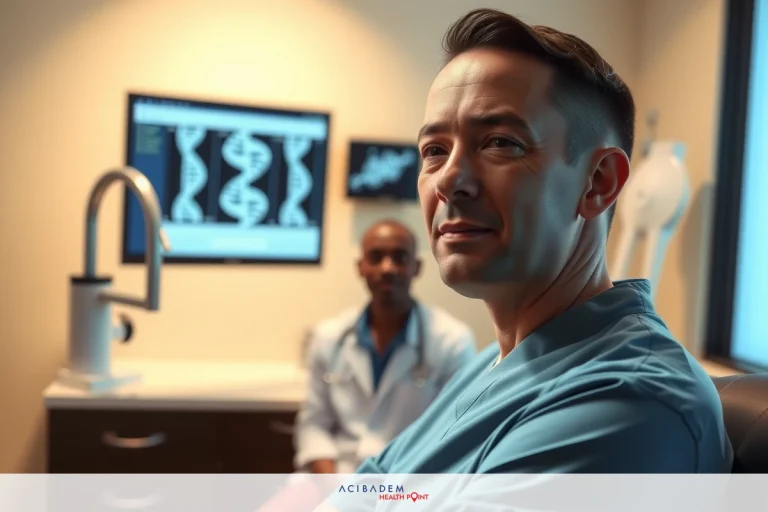How Does Targeted Therapy Work For Throat Cancer?
How does targeted therapy work for throat cancer? Targeted therapy is a new way to treat throat cancer. It’s different from other treatments. Instead of attacking all cells it focuses on the bad ones. This makes it a precise and effective option.People with throat cancer often look for better options. Targeted therapy offers hope by zeroing in on specific cells. It can be less harsh on the body compared to older methods.
Why does this matter? Because it changes how we think about treatment. Patients may have fewer side effects and better results. Doctors use advanced tools to find out which targets are best.
In simple terms targeted therapy aims at what needs fixing without harming healthy parts of your body. You get care that fits your needs more closely making recovery smoother and faster.
What is targeted therapy?
Targeted therapy is a cancer treatment that zeroes in on specific cells. Unlike other treatments it does not harm all the cells. It focuses only on the bad ones in your body. This makes it both precise and effective for throat cancer therapy.
How Does Targeted Therapy Work For Throat Cancer? Doctors look at what makes throat cancer grow. They find certain targets within the cancer cells. These targets can be proteins or genes that help the cancer thrive. By aiming at these targets doctors can slow down or stop the growth of cancer.
This method has fewer side effects compared to older methods like chemotherapy. Chemotherapy attacks both healthy and unhealthy cells which leads to more side effects. Targeted treatment aims only at harmful cells so healthy parts stay safe.
In short targeted therapy offers a better way to treat throat cancer without harming good parts of your body too much. It’s a smart solution for those looking for effective and less harsh options in their fight against throat cancer.
Types of targeted therapy
How Does Targeted Therapy Work For Throat Cancer? There are different types of targeted therapy for throat cancer. One common type is monoclonal antibodies. These drugs attach to specific proteins on cancer cells. They help the body’s immune system find and destroy these cells.
Another type involves small molecule inhibitors. These drugs enter the cancer cells directly. They block signals that tell the cell to grow or divide. This helps stop the spread of throat cancer.
Some therapies focus on angiogenesis inhibition. Angiogenesis means making new blood vessels which tumors need to grow. By stopping this process these treatments cut off nutrients to the tumor.
PARP inhibitors represent another approach in targeted treatment for throat cancer. PARP is a protein that helps fix damaged DNA in cells. By blocking it these drugs make it hard for cancer cells to repair themselves and survive.
Each type has its own benefits and uses in throat cancer therapy. Doctors often choose based on what targets they find in your specific case. This makes each treatment plan unique and more effective for you.

Benefits of targeted therapy
Targeted therapy offers many benefits for treating throat cancer. One big plus is its precision. Unlike other treatments it aims only at the bad cells. This means less harm to healthy parts of your body.
Patients often experience fewer side effects with targeted treatment. Traditional cancer treatments can be rough and cause a lot of discomforts. But targeted therapy focuses on specific targets leaving healthy cells alone.
Another benefit is that it can work when other treatments fail. Sometimes chemotherapy or radiation does not do the job well enough. Targeted therapies provide another option that could be more effective in such cases. How Does Targeted Therapy Work For Throat Cancer?
Lastly targeted therapy allows for personalized care plans. Doctors look at what makes your throat cancer unique before choosing a treatment plan just for you. This tailored approach often leads to better results and improved quality of life during treatment.
Side effects to consider
While targeted therapy is effective it can still have side effects. These side effects are usually less severe than those of traditional treatments. However they can still affect your quality of life during treatment.
One common side effect is skin problems. Patients may develop rashes or dry skin. Some might even experience itching or blistering. These issues are often mild but should be monitored by a doctor.
How Does Targeted Therapy Work For Throat Cancer? Another possible side effect involves gastrointestinal problems like nausea and diarrhea. This happens because the drugs also affect some healthy cells in your digestive tract. Drinking fluids and eating light meals can help manage these symptoms.
Fatigue is another issue to watch for during throat cancer therapy with targeted treatment. Feeling tired all the time can impact daily activities and overall well-being. Resting and taking short naps may help you feel better while undergoing treatment.
In summary, while targeted therapy offers many benefits, it’s important to be aware of potential side effects like skin issues, gastrointestinal problems, and fatigue so that you can manage them effectively during your cancer treatment journey. How Does Targeted Therapy Work For Throat Cancer?
Who can receive targeted therapy?
Not everyone with throat cancer is eligible for targeted therapy. Doctors look at specific factors to decide if it’s right for you. One key factor is the type and stage of your cancer. How Does Targeted Therapy Work For Throat Cancer?
Targeted therapy works best when certain targets are present in the cancer cells. Tests help find these targets like proteins or genes that promote growth. If these tests show you’re a good candidate then this treatment might be an option.
Your overall health also plays a role in eligibility for targeted treatment. Patients need to have sufficient strength to handle any side effects. A doctor will check your medical history and current condition before recommending it.
Previous treatments you’ve had may affect whether you can start targeted therapy now. If other treatments haven’t worked well doctors might suggest trying something new like this method.
In summary, eligibility depends on several factors: the type of throat cancer you have, results from specific tests, your general health status, and past treatments you’ve undergone. Always consult with your healthcare
team to see if targeted therapy is suitable for you.
Frequently Asked Questions
Q: What makes targeted therapy different from chemotherapy?
A: Targeted therapy aims only at specific cancer cells causing fewer side effects than chemotherapy.
Q: How long does targeted therapy treatment last?
A: The length of treatment varies. It depends on the type and stage of throat cancer and how well you respond to the therapy.
Q: Are there any dietary restrictions during targeted therapy?
A: Some foods may interact with your medication. Always consult your doctor for specific guidelines.









